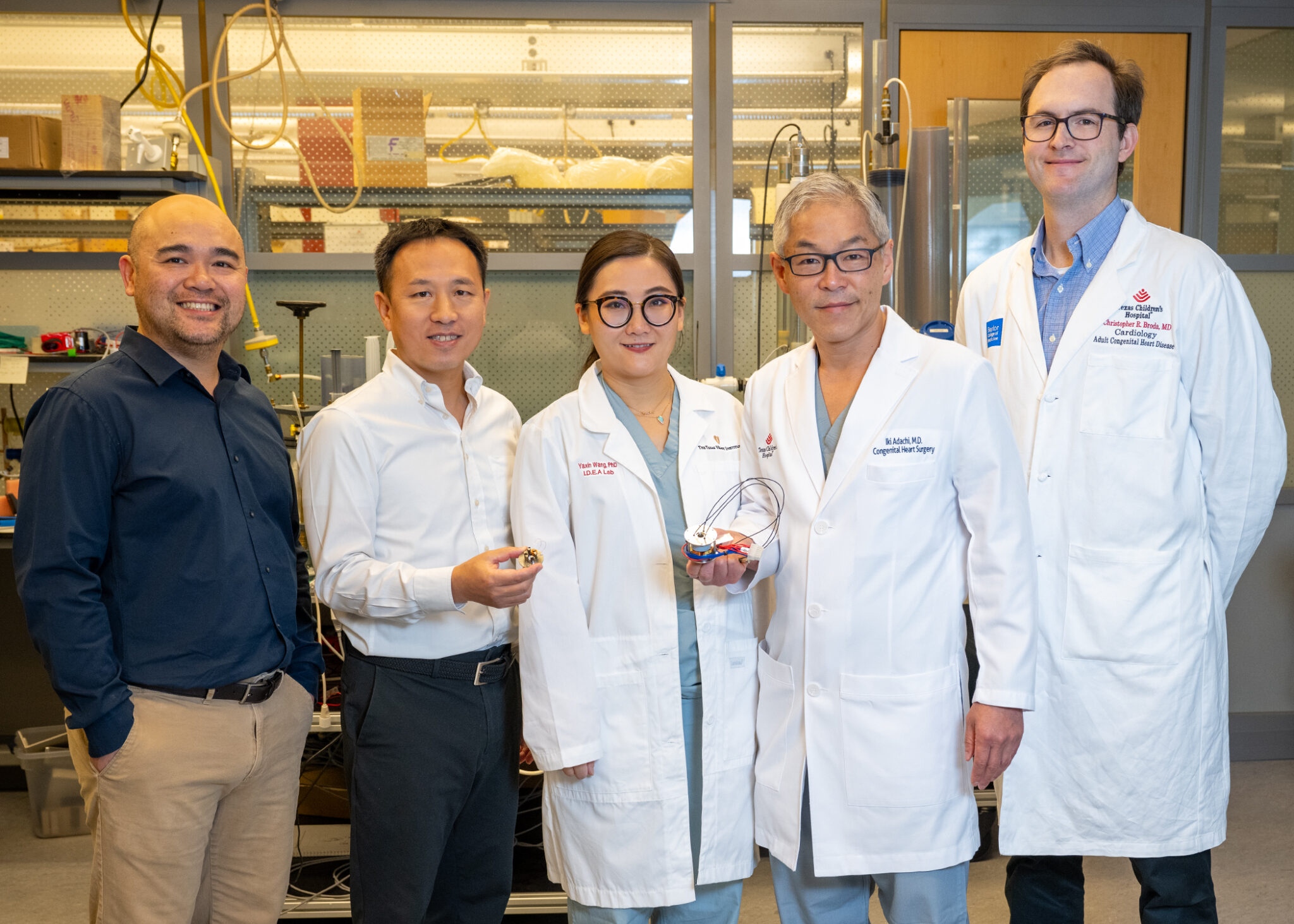ReVolutionary Heart Pump Offers New Hope for Infants with Congenital Heart Disease

A dedicated team of researchers and physicians are closer to realizing their hopes of a new device that will change and even save lives of countless children with congenital heart disease. The team, comprising experts from, Baylor College of Medicine (BCM), Texas Children’s Hospital (TCH), The Texas Heart Institute (THI), and University of Nevada, Las Vegas (UNLV) has been selected as one of 14 recipients for funding through the 2024 Single Ventricle Research Fund (SVRF) in response to their groundbreaking proposal.
Led by Principal Investigator and renowned surgeon Dr. Iki Adachi (BCM/TCH), and a talented team of researchers including Dr. Nobuyuki Kurita (BCM/TCH), Dr. Chris Broda (BCM/TCH), Dr. Yaxin Wang (THI), Dr. Chris Chan (THI), and Dr. Huang Chen (UNLV) the team was recognized for their work on a novel implantable device called “ReVolution.” This advanced pump is specifically designed for infants with congenital heart disease who have undergone the Fontan procedure. Unlike traditional approaches that merely support the failing Fontan circulation, the ReVolution pump establishes a “biventricular” circulation, making it adaptable to a variety of different anatomies.
What sets the ReVolution apart is its use of a maglev centrifugal blood pump. This core feature facilitates the connection of the vena cava and pulmonary artery, enhancing blood flow from the SVC and inferior vena cava (IVC) to the left and right pulmonary arteries (LPA and RPA). The maglev technology allows for a significant blood gap, thereby reducing shear stress and minimizing the risk of blood stagnation within the drive system.
The successful integration of the ReVolution pump holds the potential to dramatically reduce or even eliminate the need for heart transplants among Fontan patients by providing a long-term solution. This could lead to a significant reduction in healthcare costs associated with managing chronic complications and substantially improve the quality of life and lifespan for these patients. Moreover, this breakthrough is expected to catalyze further research and innovation in the field of congenital heart disease, potentially leading to new treatment paradigms for other complex cardiac conditions.
Congenital heart disease (CHD) is a condition present at birth that results in structural differences in the heart and blood vessels, affecting approximately 1 in 100 babies each year. Single-ventricle heart disease, a particularly severe form of CHD, often requires the implementation of a Fontan circulatory system, where the single ventricle supports systemic circulation while pulmonary circulation is driven by venous pressure alone.
The SVRF award program is dedicated to advancing bold and innovative research aimed at accelerating foundational discoveries and improving care for individuals with single-ventricle heart defects. These grants, awarded annually, support research projects over three years and provide up to $600,000 in direct costs.




